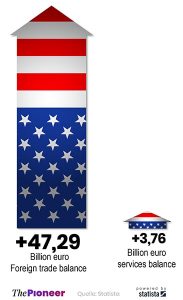Germany, A Political Dwarf?
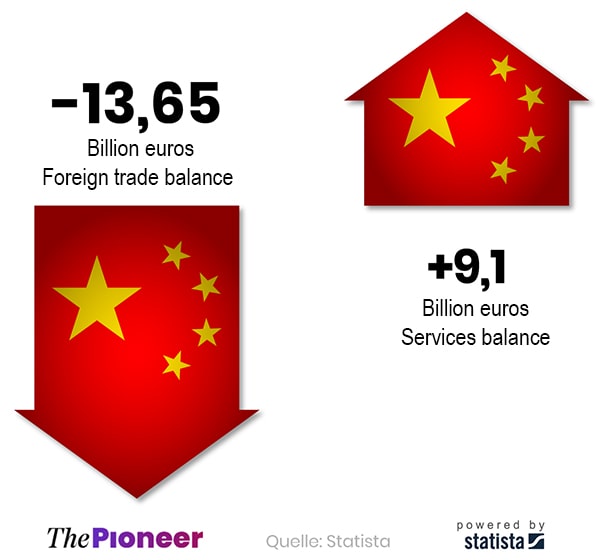
Germany considers itself to be an economic giant, yet at the same time a political dwarf, and this has formed the operating system of their export nation for decades. They prefer to do good business in the slipstream of major conflicts. And with everyone:
- In 2019, goods worth €206 billion were traded between Germany and the People’s Republic of China. Without the income from China, our machine builders and also the car companies would be on shaky feet.
China also benefits: Import and export business between China and Germany 2019
The German export industry is also doing big business with America. In terms of its foreign trade balance, Germany posted a surplus of €47.29 billion in 2019. It is in imbalances like this that Trumps “America First” campaign is based.
Trump’s nuisance: Import and export business between Germany and the USA 2019
The foreign trade balance with the United Arab Emirates was up by €7.66 billion in 2019, compared with Saudi Arabia at €4.74 billion. The “value-based foreign policy”, which Heiko Maas often talks about, is limited here.
This basically apolitical positioning is no longer tenable, says Wolfgang Ischinger, the former ambassador to London and Washington and today’s head of the Munich Security Conference:
We are living in a turning point in which the cherished certainties of German foreign policy no longer apply. Something has to change.
In his latest report he says:
The global economy is increasingly determined by geopolitical considerations. For the trading state Germany, globally networked like no other, the new era of great power competition is also an economic challenge. It cannot avoid this development; it will have to make tough decisions.
The Americans are demanding allegiance, as shown by the current conflicts over the North Sea pipeline, the Iran sanction and the exclusion of Huawei from German telecommunications connections. Germany reacts confused – or not at all. The report knows why:
German foreign policy is changing – but the world around us is changing faster.
What has been missing so far is a will, borne by the political class, for a new German foreign policy that makes a “sovereign Europe” possible.
Little money for foreign policy: Share of total expenditure of the federal budget from 1950 to 2019, in percent
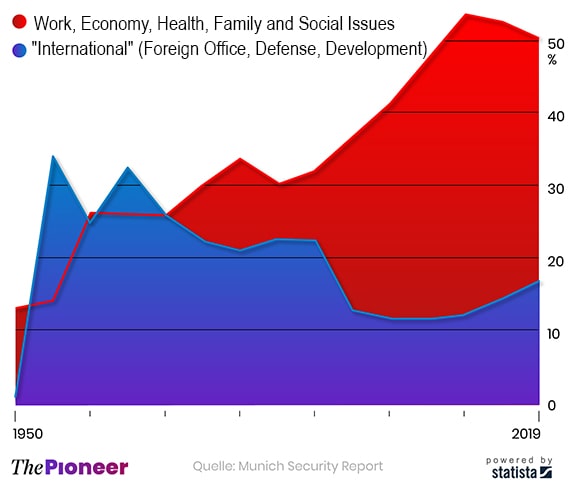
After the fall of the Berlin Wall and the implosion of the Soviet Union, Germany was able to collect a peace dividend, said Ischinger. Based on the expenditure in the federal budget , he proves that the funds for solving international conflicts (see graphic) have shrunk and the proportion of the budget that could be spent to satisfy claims domestically increased at the same time.
The graphic above tells the story of a happy nation until then.
But how does the population feel about the end of the peaceful coexistence that emerged in the period immediately after the Cold War ? At least the viewers of the Tagesschau, the readers of a daily newspaper and also the friends of the Morning Briefing are in the picture about the continental drift that is taking place. According to the report, the higher the education, income and position in professional life, the more clearly the turning point in foreign affairs is perceived as such.
The opinion polls come to the following conclusions:
A considerable proportion of the population is in favour of a more self-confident attitude towards Germany towards the USA, China and Russia. Thus, 69 percent of citizens believe that Germany occurs towards the People’s Republic too cautious – which is shared across party lines an opinion.
Low expenses: German military spending 1953 to 2019
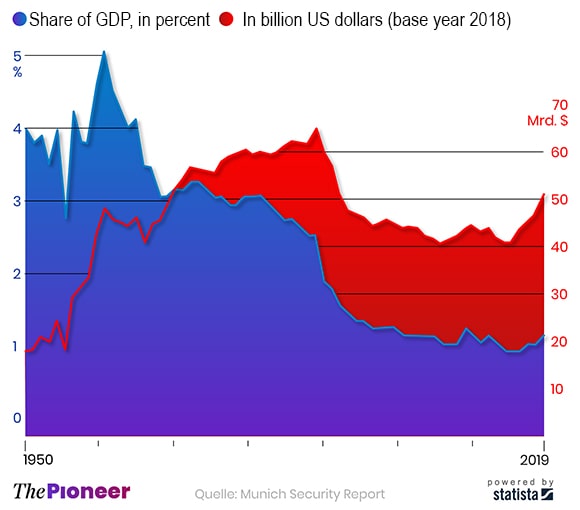
- 64% are of the opinion that the EU should unite more closely and are calling for greater commitment from the government.
- This is also reflected in the assessment of the EU’s foreign policy: 94% consider it very important or important for the EU to take a united front on foreign policy issues.
Wolfgang Ischinger says:
We have to come to majority decisions in the EU. Where is the federal government’s initiative?
More and more crises: Number of armed conflicts from 1946 to 2018
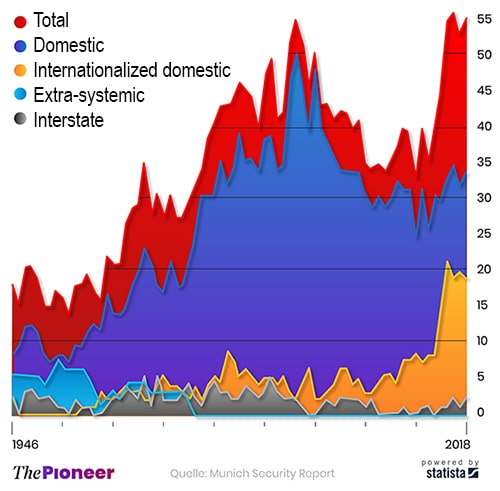
The population is further than the government. It senses what the experts clearly articulated at this meeting: German foreign policy must change or the country will be changed.
Gabor Steingart
